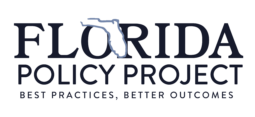Better Governance Through Evidence-Based Decision-Making
Florida’s policymakers face tough budgetary choices annually, allocating resources to address critical challenges like crime, education, housing, and environmental protection. This report highlights the need for systematic evaluation of state-funded programs to ensure taxpayer dollars are invested in initiatives that deliver measurable results.
Key Insights
Challenges in Current Approaches
- Lack of Measurement: Florida lacks a comprehensive list of state-funded programs and their outcomes.
- Inefficiencies: Many programs operate without evidence of effectiveness, limiting their impact on pressing state issues.
The Importance of Evidence-Based Approaches
- States like North Carolina, Minnesota, and Washington have implemented frameworks to assess program effectiveness, leading to billions of dollars redirected to proven initiatives.
- Evidence-based evaluations improve confidence in budget decisions and optimize taxpayer investments.
Proposed Solutions
- Establish a Policy Framework
- Define “program” and levels of effectiveness in state statutes.
- Mandate rigorous evaluations of pilot programs within five years to determine their impact.
- Create a Review Mechanism
- Require state agencies to report inventories of their current programs.
- Classify programs by their evidence of effectiveness and reallocate funds from underperforming initiatives.
Lessons from Other States
- Minnesota: A searchable database categorizing over 500 programs by their evidence ratings.
- Washington State: A benefit-cost analysis model evaluates returns on investment for 400+ programs across 11 policy areas.
- Mississippi: Requires agencies to justify new funding requests with evidence-based outcomes.
Why It Matters
These measures can:
- Ensure public funds support programs with proven effectiveness.
- Increase legislative confidence in budgetary decisions.
- Drive impactful results across critical policy areas, from public safety to education.

